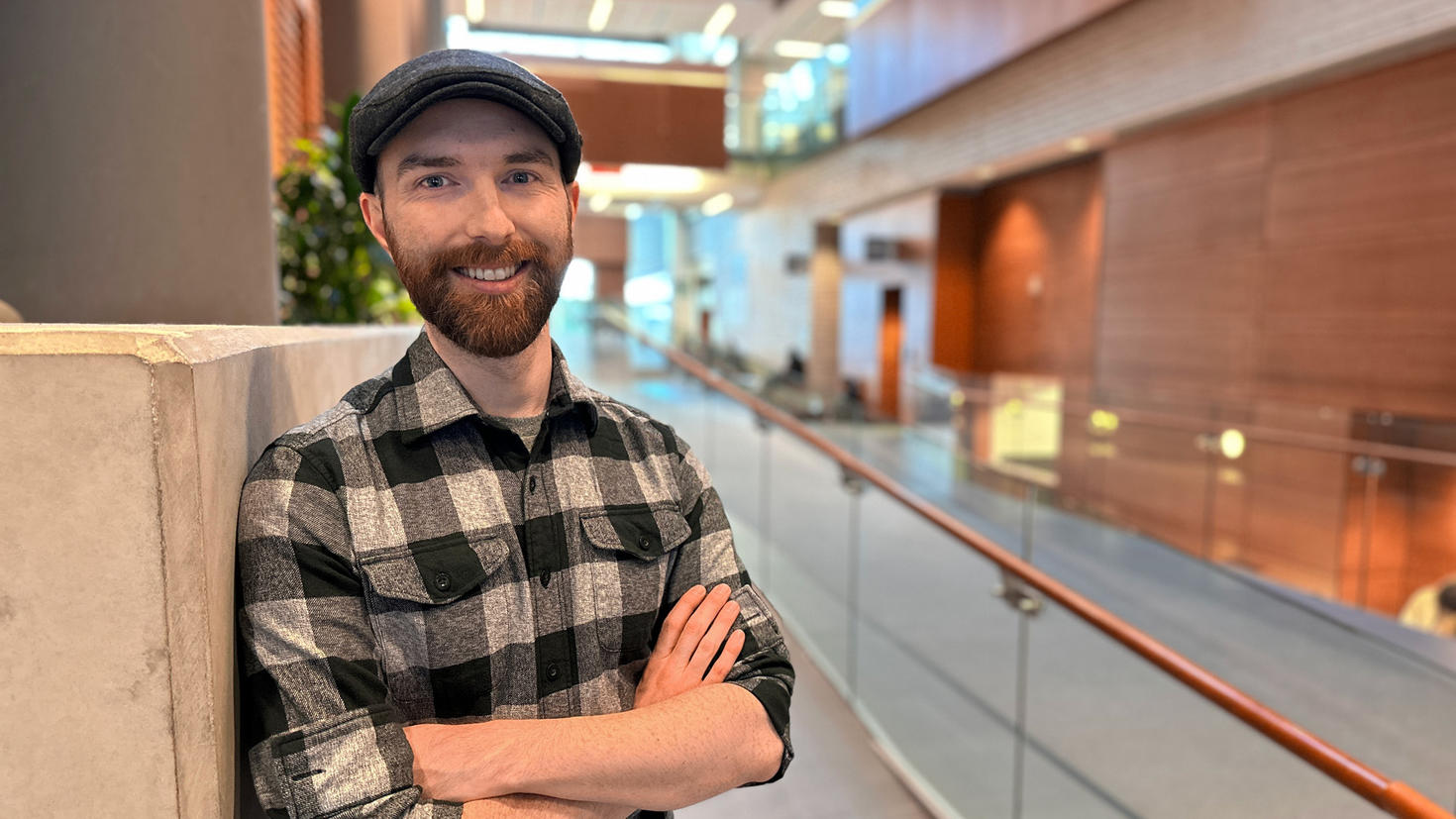Graduate studies were the next step for Smith. After completing an MA in educational research, he began his PhD in our Faculty. His doctoral research, funded in part by a Canada Graduate Scholarship from the Social Sciences and Humanities Research Council, is timely, as new educational technologies continue to shape teaching and learning.
As part of our Scholars in Education series, we caught up with Smith for a conversation on how his interest in classroom tech led to bigger questions about supporting teachers through professional learning and community building.
Tell us about your background and what sparked your interest in research.
Growing up in Europe in a military family, we travelled around quite a bit. Being exposed to so many different places, I’ve always been fascinated by languages — how they work, how we use them and how we learn them. I guess those wonderings led me towards a career in language teaching!
I started as an elementary French as a second language teacher. During that time, I worked as a technology coach with the school board, supporting educators who wanted to integrate technology into their classrooms. After completing a master of arts in educational research in Alberta, I returned to Ontario in 2020 (yes, in the middle of the pandemic!) and started the PhD program here at uOttawa under the supervision of Professor Stephanie Arnott.
Walk us through your doctoral research project.
My study explores FSL teachers’ use of educational technology. I’m interested in what these teachers do with technology in their practice, how they think about these tools and what their experience is like. We know that all these factors — e.g., teacher beliefs, their training, access to devices and whether they’ve had positive or negative experiences with technology — play a role in why and how teachers do (or don’t) use technology. There just hasn’t been that attention to how this plays out in FSL. Specifically, I created a small professional learning group, called a community of practice, to connect FSL teachers. The collaboration helped us take on this learning together. I met with the teachers bi-weekly over the course of a school year to design lessons using technology. I also spent a few days each month in each teacher’s classroom to observe and support them in achieving those goals.
What motivated you to explore teachers and tech?
I had questions and wanted to know more! A lot of that inspiration came from my first year of teaching, when I was working in grades 4 to 8 core French. That year was full of wonderings and frustrations related to using technology in FSL. I wasn’t sure what I was doing was effective for my students, and being in FSL brought unexpected challenges to my plans. It was a nightmare trying to schedule the devices, since I was competing with different teams of homeroom teachers over shared resources, and the number of French-related apps and content I could access was limited. Was this how other FSL teachers felt? How were they making things work in their classrooms? I also felt quite isolated in my school because I was the only FSL teacher. I didn’t have anyone who understood my work enough to give me realistic and practical strategies. This made community building in my study even more important. Rather than having everyone do all this work on their own, I wanted my study to support teachers in pooling resources, time and energy in designing technology-mediated lessons that they could all use.
Who do you hope will benefit from your work?
Well, the folks I worked with said they enjoyed the experience and got a lot out of it! That’s the great thing about participatory research — it’s already entwined with what the teachers are doing in their day-to-day work. These teachers are also leaders in their communities and involved with the culture of the school board, so they’ve been taking what they’ve learned into conversations with other educators, which is great to hear! More broadly, I hope the findings help inspire and support other communities of FSL teachers. It’s important that we keep pushing our understandings of FSL teaching forward and finding space between the ideals and the realities of their practice.
Plus, during the pandemic and online teaching, educational technology really took the spotlight in a lot of conversations in the media and in academia. So, seeing how things have changed — now that these teachers are back in person — is helpful for shaping the future of technology in the language classroom. What have they kept up? What are they thinking about in a new way? What new challenges have appeared?
Why did you choose uOttawa?
I couldn’t think of a better place to study FSL than the University of Ottawa. Within the Faculty of Education, second language research is a prominent area of expertise. I’ve been so fortunate to work with so many Faculty members and other graduate students in this area, particularly with the EducLang research group, which has made my experience so impactful. The same goes for educational technology. There’s no shortage of experts in this area, and I’ve benefitted from their different perspectives and knowledge. Plus, with the work of the Official Languages and Bilingualism Institute, this is reflected in research and the culture of the University more broadly. It’s been great for me to connect across uO and find scholars in all faculties who are taking up language research.
Learn more about Smith's research on his Google Scholar profile.


